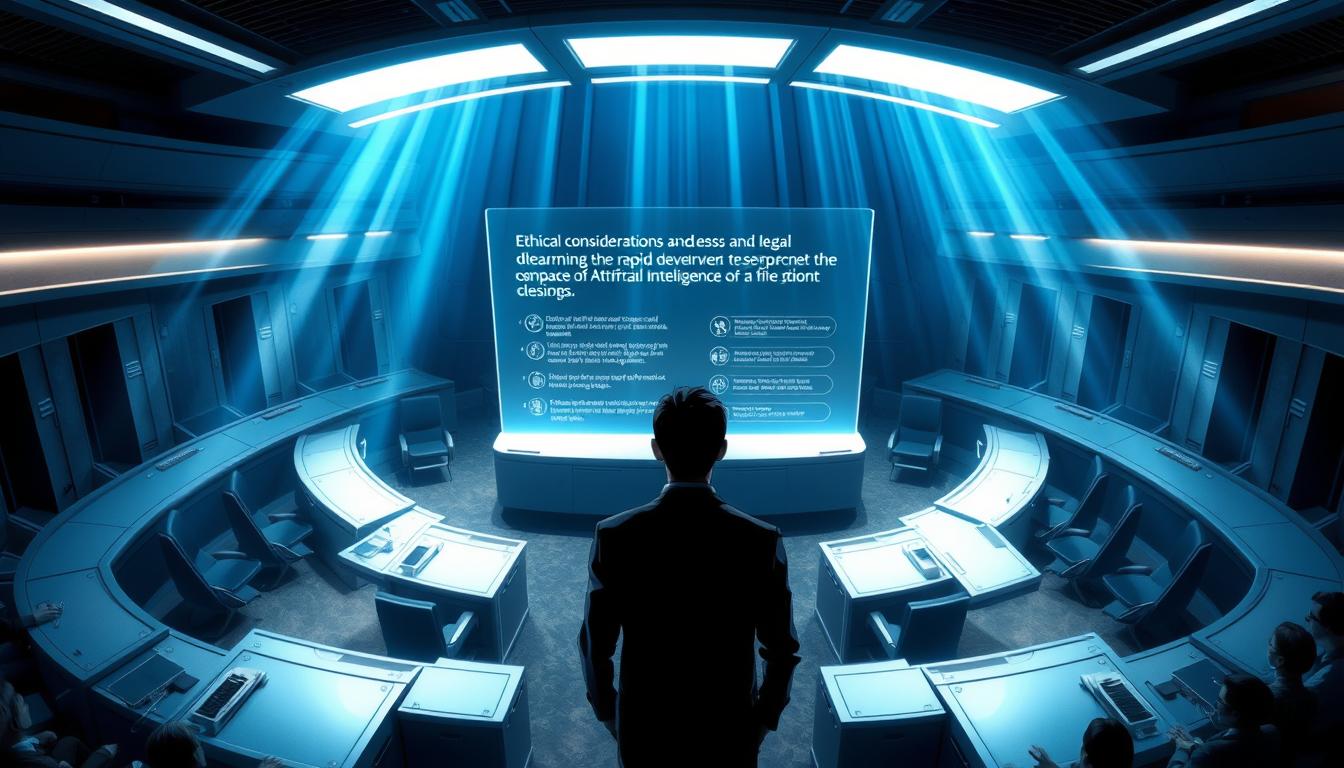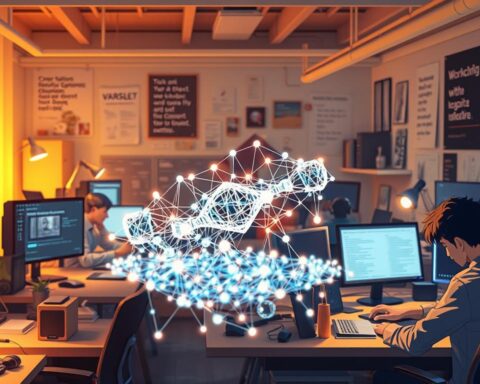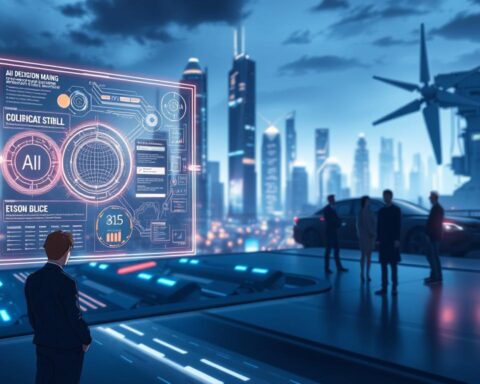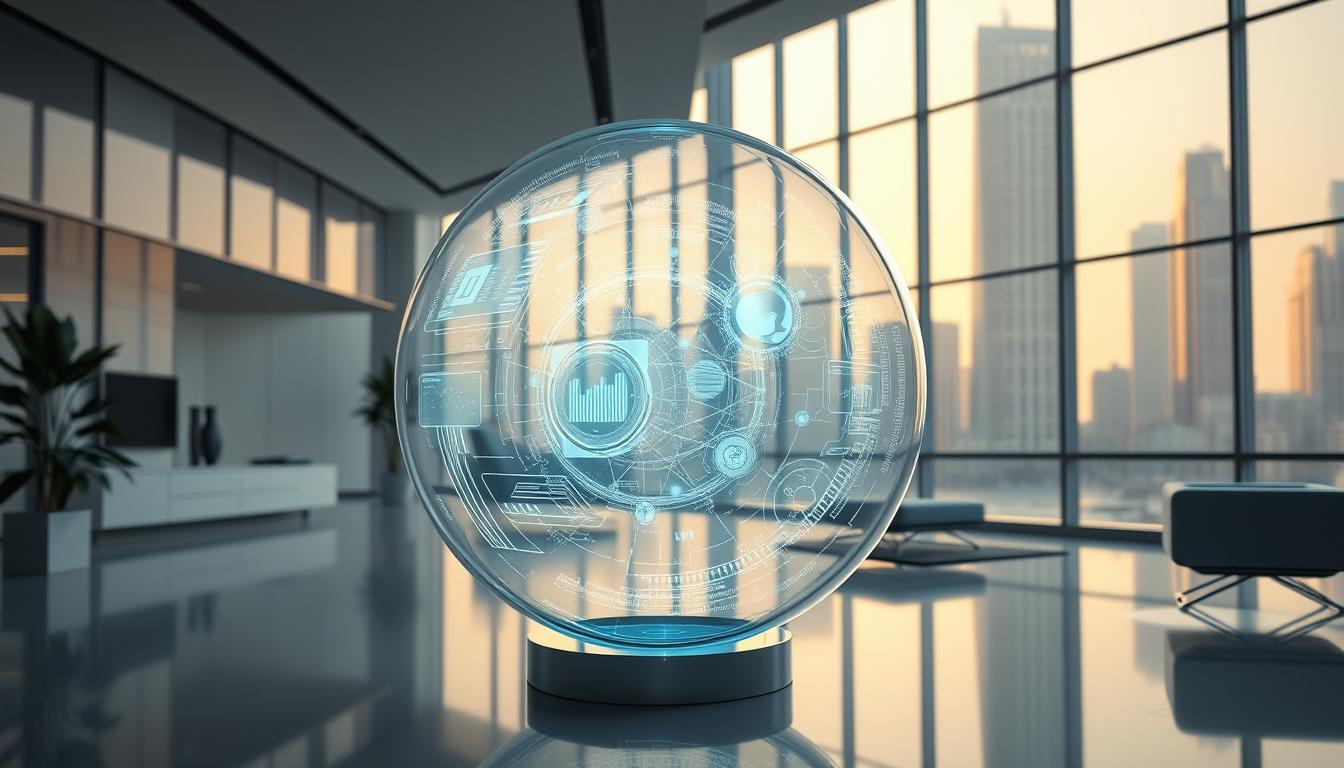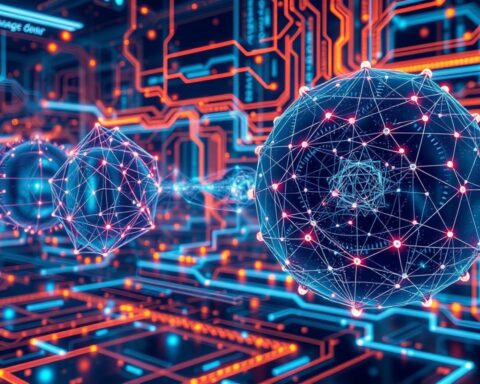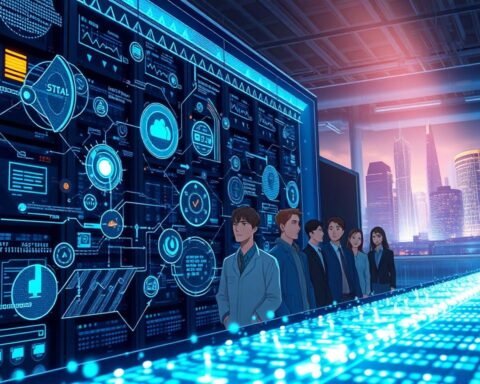Artificial intelligence is growing fast. It brings up big questions about ethics and laws. Experts say 67% of jobs will change a lot in five years because of AI. It’s key to make rules for AI to use it right.
President Joe Biden has made a plan for AI. The European Union wants to make rules for AI too. Companies like Avaya are making plans for AI. They need to think about fairness and avoiding bias.
Introduction to AI Ethics
AI is growing fast, and people are worried. 66% think AI will bring new problems. Companies must follow rules and be fair with AI.
They need to keep data safe. 15% worry about AI data breaches. 25% fear AI might not be accurate.
Key Takeaways
- AI Ethical and Legal Considerations are key for AI.
- 93% of people think we need rules for AI.
- Companies must follow rules and be fair with AI.
- Rules like the EU AI Act help make AI safe.
- AI plans, like Avaya’s, help follow rules.
- Keeping data safe and accurate is important for AI.
Overview of AI and Intellectual Property Rights
As AI gets more popular, companies face new challenges in protecting their ideas. AI governance and machine learning compliance are key. They help follow data privacy laws.
AI and intellectual property rights mix in tricky ways. We need clear rules to protect creators and inventors.
Intellectual property is vital in AI. Questions pop up about who owns AI-made stuff. The fair use rule is also a big deal. It lets people use copyrighted stuff a little without asking.
But, what if AI makes new stuff from old works? This makes us wonder about fair use limits.
Companies must check their IP and follow rules to avoid legal trouble. AI’s role in making new things is complex. We need to document how AI works to show it’s original and made by humans.
Legal Framework Surrounding AI Creation
The laws around AI are complex and changing. AI raises big questions about ethical algorithms and AI accountability. It’s key to think about these when we make and use AI.
One big problem is the lack of clear rules. Laws don’t see AI as a legal person. This means AI can’t own what it creates. This makes things unclear and raises big questions about AI accountability and ethical algorithms.
Some big issues with legal implications of AI include:
- Who owns AI-made content?
- Who is to blame for AI mistakes?
- How should we control AI making and using?
As AI use grows, we need clear rules. This will help AI be used right and ethically. It will also consider the legal implications of AI.
Ownership of AI-Generated Works
The question of who owns AI-generated works is tricky. It’s hard to figure out who the creator is. As AI gets better, we need clear rules to protect creators and inventors. AI regulation and AI governance are key to solving this problem.
There have been big cases about who owns AI creations. For example, the DABUS case in the UK showed that AI inventions need a human creator to be patented. This shows we need strong data privacy laws to handle AI works.
We must make clear rules for owning AI works. This can happen with AI regulation, AI governance, and data privacy laws. Together, we can protect creators and use AI works right.
Copyright Issues in AI Development
AI systems use human instructions to solve problems. They create valuable intellectual property. But, this raises big AI Ethical and Legal Considerations, like copyright issues.
The question is, can AI outputs get copyright protection? And what are the limits and exclusions in copyright law? These are important questions.
The artificial intelligence ethics around copyright are tricky. Many think AI content should get copyright protection. But, the US Copyright Office says only humans can claim copyright.
This affects machine learning compliance. Companies must make sure their AI systems don’t break copyright laws.
Some examples of copyright problems in AI include:
- Getty Images said the Stable Diffusion model broke copyright laws.
- Artists sued AI image programs like Stable Diffusion in a class action lawsuit.
- The Monkey Selfie case is a precedent for copyright in non-human creators.
Patent Law and AI Innovations
Patent law and AI innovations are very complex. Many patent offices are trying to figure out AI’s role in inventing. AI governance and data privacy laws are key to this issue. They help shape how AI-driven innovations are made and used.
One big problem is that patents need a human inventor’s name. This makes it hard to know who owns AI-made inventions. It also raises questions about ethical algorithms and patents. Patent offices and rules need to be clear about AI inventions.
To solve these problems, new laws and rules for AI inventions are needed. Also, making global standards for AI patents is a good idea. Working together, we can make sure AI’s benefits are shared. And we can protect the rights of creators and inventors too.
Trade Secrets and AI Technology
AI models are getting smarter. This makes it key to have clear rules to protect secrets and ideas. The legal implications of AI are big, and companies must keep up with changing laws to lead. With AI, worries about stealing secrets and using AI to guess competitors’ ideas are growing.
AI can look at lots of data, which raises the chance of spying. More cases of stealing ideas are happening in tech. For example, GlaxoSmithKline lost secrets, and Uber and Waymo fought over ideas. To fight these issues, companies are using strong AI security to find and stop intruders.
Some ways to keep secrets safe with AI include:
- Make non-disclosure agreements stricter and enforce them well
- Use strong security to stop data leaks
- Have ethics boards to make sure AI is used right

By focusing on AI regulation and AI accountability, companies can lower risks with AI. They can also keep their secrets and ideas safe. As AI keeps changing, it’s vital to keep up with new laws about ideas.
Ethical Considerations in AI Development
As AI grows, artificial intelligence ethics is more important than ever. Deepfakes have become a big problem, affecting almost 29% of people and 18% of businesses. This shows we need machine learning compliance and data privacy laws to keep everyone safe.
Using AI in work raises big data privacy worries about employee data. Companies must use diverse data to avoid algorithmic bias.
We need clear rules for making AI to protect creators and innovators. This means following machine learning compliance and data privacy laws to stop AI misuse.
Putting artificial intelligence ethics and machine learning compliance first helps AI grow safely. We all must work together. This includes companies, governments, and people to use AI right, following data privacy laws and ethics.
Global Perspectives on AI IP Regulations
World governments are trying to find a balance. They want to help AI grow and keep laws up to date. It’s key to have clear rules for AI governance and ethical algorithms. This ensures creators and innovators get the rights they deserve.
Recent studies show over 90% of writers think they should get paid for their work in AI. This shows we need fair ways to pay creators.
Having global standards is very important. It helps make sure AI works are protected the same everywhere. The global views on AI IP laws are different. Some places protect AI works a bit, while others need a human to own the copyright.
It’s very important to make sure AI is fair and open. This is called AI accountability. It helps make sure AI is used right and is fair for everyone.
Some important things to think about are:
* We need the same rules for AI IP everywhere.
* Creators should get paid fairly for their work in AI.
* AI governance is key to making sure AI is used right.
* Ethical algorithms
Future Trends and Predictions in AI IP Rights
Looking ahead, AI will change how we think about intellectual property. The market for digital IP solutions is expected to grow fast. Businesses need to focus on AI rules and ethics to stay ahead.
A study found that 80% of IP experts think AI will change IP rights a lot. Companies must have strong plans to protect their ideas. For more on AI and IP, check out Dentons’ insights on AI trends.
By focusing on AI ethics and laws, businesses can keep up with IP changes. They can protect their ideas, innovate, and stay competitive.
FAQ
What are the current challenges and uncertainties surrounding AI-generated content and intellectual property rights?
How does the definition of AI in the context of IP impact the development and use of AI?
What are the current IP laws relevant to AI, and what are the challenges in existing legal structures?
How is the ownership of AI-generated works determined, and what are the challenges in determining creator status?
What are the copyright issues in AI development, and how do they impact the eligibility of AI outputs for copyright protection?
What are the criteria for patentability in AI, and what are the implications of notable AI patents?
How can AI innovations be protected as trade secrets, and what are the risks of revealing AI technology?
What are the ethical considerations in AI development, and how can responsibility and accountability be ensured in AI?
What are the global perspectives on AI IP regulations, and how can international standards be adopted?
What are the future trends and predictions in AI IP rights, and how will AI shape future IP laws?
Source Links
- Navigate ethical and regulatory issues of using AI – https://legal.thomsonreuters.com/blog/navigate-ethical-and-regulatory-issues-of-using-ai/
- Navigating the ethical and legal risks of AI implementation – https://www.cio.com/article/2149672/navigating-the-ethical-and-legal-risks-of-ai-implementation.html
- AI and Intellectual Property: Navigating the Legal Landscape – https://profiletree.com/ai-and-intellectual-property/
- AI Regulations and Ethics What Executives Need to Know – https://www.childrenshospitals.org/content/education/summary/ai-regulations-and-ethics-what-executives-need-to-know
- Exploring the legal and ethical implications of artificial intelligence in intellectual property law | City St George’s, University of London – https://www.citystgeorges.ac.uk/news-and-events/news/2024/july/exploring-legal-ethical-implications-of-artificial-intelligence-intellectual-property-law
- AI And The Law: Navigating Legal Challenges In AI Development – https://elearningindustry.com/ai-and-the-law-navigating-legal-challenges-in-ai-development
- The Growth of AI Law: Exploring Legal Challenges in Artificial Intelligence – https://natlawreview.com/article/growth-ai-law-exploring-legal-challenges-artificial-intelligence
- AI-generated content and IP rights: Challenges and policy considerations – Diplo – https://www.diplomacy.edu/blog/ai-generated-content-and-ip-rights-challenges-and-policy-considerations/
- Who Owns AI-Created Content? Key Ownership and Contract Considerations – https://www.khlawfirm.com/artificial-intelligence-doesnt-own-its-outputs-so-who-does-ai-ownership-and-related-contractual-considerations/
- Copyright Ownership in the Age of AI – https://trendsresearch.org/insight/copyright-ownership-in-the-age-of-ai/?srsltid=AfmBOorx0gu-uoXAeFwG_zjwOoI2BkW5PdZJRTXWho1n3yNoqDN07fed
- AI Ethics: Navigating the Maze of Regulation, Copyright, and Ethical Concerns – https://www.netguru.com/blog/ai-ethics-navigating-the-maze-of-regulation-copyright-and-ethical-concerns
- Regulation, Copyright and Ethical AI: New Challenges – https://siliconvalley.center/blog/regulation-copyright-and-ethical-ai-new-challenges
- Copyright and Artificial Intelligence, Part 1 Digital Replicas Report – https://copyright.gov/ai/Copyright-and-Artificial-Intelligence-Part-1-Digital-Replicas-Report.pdf
- AI-Generated Inventions: Implications for the Patent System – Southern California Law Review – https://southerncalifornialawreview.com/2024/04/16/ai-generated-inventions-implications-for-the-patent-system/
- The Impact of AI on Patent Drafting Practices – PatentPC – https://patentpc.com/blog/the-impact-of-ai-on-patent-drafting-practices
- The future of AI and patents: ethical challenges and opportunities – https://www.patsnap.com/resources/blog/the-future-of-ai-patents-ethical-challenges-and-opportunities/
- AI and intellectual property rights – https://www.dentons.com/en/insights/articles/2025/january/28/ai-and-intellectual-property-rights
- The Legal Issues to Consider When Adopting AI – https://spectrum.ieee.org/legal-issues-to-consider-ai
- AI Is Deciphering Your Corporate Trade Secrets – https://www.forbes.com/sites/neilsahota/2024/05/22/ai-is-deciphering-your-corporate-trade-secrets/
- 5 Ethical Considerations of AI in Business – https://online.hbs.edu/blog/post/ethical-considerations-of-ai
- Ethical Considerations in the Use of Artificial Intelligence and Machine Learning in Health Care: A Comprehensive Review – https://pmc.ncbi.nlm.nih.gov/articles/PMC11249277/
- Ethical Considerations in AI Development – GeeksforGeeks – https://www.geeksforgeeks.org/ethical-considerations-in-ai-development/
- How AI Is Reshaping Intellectual Property Laws: Expert Insights – https://seniorexecutive.com/ai-copyright-law-ownership-intellectual-property-rights/
- AI Watch: Global regulatory tracker – United States | White & Case LLP – https://www.whitecase.com/insight-our-thinking/ai-watch-global-regulatory-tracker-united-states
- Ethical Considerations: AI and Intellectual Property Rights – https://blog.emb.global/ai-and-intellectual-property-rights/
- The Future of IP Protection: Trends and Predictions – https://patentpc.com/blog/the-future-of-ip-protection-trends-and-predictions
- What Every Business Should Know About AI in 2025: Legal Perspectives and Predictions – https://www.connkavanaugh.com/articles-and-resources/what-every-business-should-know-about-ai-in-2025-legal-perspectives-and-predictions/
- What to Expect in 2025: AI Legal Tech and Regulation (65 Expert Predictions) – https://natlawreview.com/article/what-expect-2025-ai-legal-tech-and-regulation-65-expert-predictions
